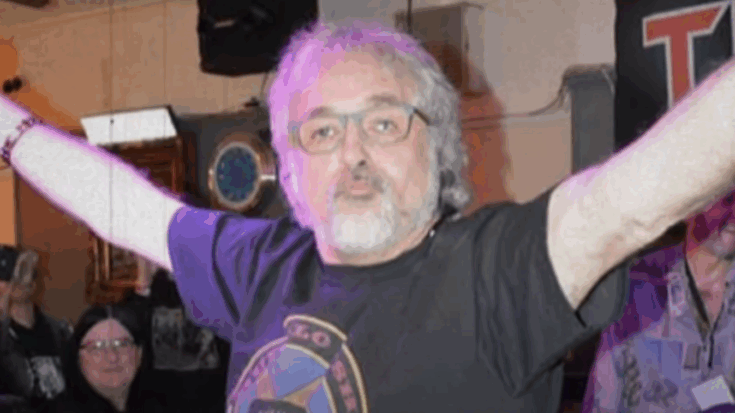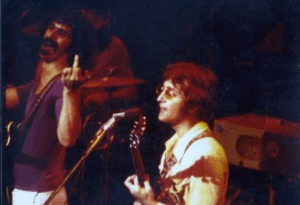Iron Maiden Pays Emotional Tribute to Their First Singer

via Entertainment World / YouTube
Iron Maiden recently honored the passing of their original vocalist, Paul Mario Day, who died at the age of 69. In a heartfelt post shared on social media, the band expressed deep sorrow and extended condolences to Day’s family and friends. Calling him a “lovely person and good mate,” the band gave fans a glimpse into the emotional connection they still held for the singer who helped launch their journey.
Though Paul Mario Day was only with Iron Maiden for a short time, his presence marked a crucial starting point in the band’s long and legendary career. The tribute reflects how formative those early days were, even for a band that would go on to become one of metal’s most iconic acts. In honoring Day, Iron Maiden acknowledged the foundation he helped build in 1975.
Fans across the globe have responded to the news with their own memories and tributes, noting Day’s contributions during Iron Maiden’s embryonic stages. While he may not have appeared on their official albums, his legacy remains important to the band’s mythology. His story serves as a reminder of how even the earliest chapters can shape a band’s identity.
A Short Yet Pivotal Chapter in Maiden History
Paul Mario Day joined Iron Maiden in December 1975 when he was just 19 years old. At the time, he was new to performing in bands and still learning the ropes. Despite his limited experience, bassist and bandleader Steve Harris saw potential in him and invited him to stay after early rehearsals. Day soon found himself fronting a band that was just beginning to carve out its future.
As Day later recalled in interviews, he wasn’t a trained singer — just someone who felt he could sing and connected with the material Harris was writing. His candid humility painted the picture of a young artist trying to grow into a role he hadn’t yet fully grasped. Those early rehearsals were filled with experimentation, learning, and the shared dream of building something new.
However, his tenure with the band came to an end in October 1976. According to Day, Harris pushed him to improve his stage presence — to be more commanding and to engage the crowd like a true frontman. Day admitted he didn’t yet know how to meet those expectations, and the band ultimately replaced him with Dennis Wilcock. Still, those formative months helped define Iron Maiden’s path forward.
View this post on Instagram
Life After Iron Maiden
Being let go from Iron Maiden didn’t stop Paul Mario Day from pursuing music. He went on to form More, one of the many acts to emerge from the new wave of British heavy metal. He sang on their 1981 debut album Warhead, further establishing himself in the genre and showing that his musical journey was far from over.
Day continued performing throughout the 1980s, joining the band Wildfire for a brief period between 1983 and 1984. He later joined a reformed version of glam rock band Sweet, working alongside Andy Scott and Mick Tucker and appearing on their 1986 live album Live at the Marquee. These stints showed his resilience and ability to adapt across different rock styles.
While he may never have achieved household-name status, Paul Mario Day’s legacy lives on through his work and the impact he had on Iron Maiden’s early development. His passing has brought renewed attention to his role in the band’s story and to the music he continued to make long after. It’s a legacy built on persistence, talent, and quiet influence — one that fans and bandmates alike now celebrate with gratitude.
https://twitter.com/historyrock_/status/1950290502269509632











